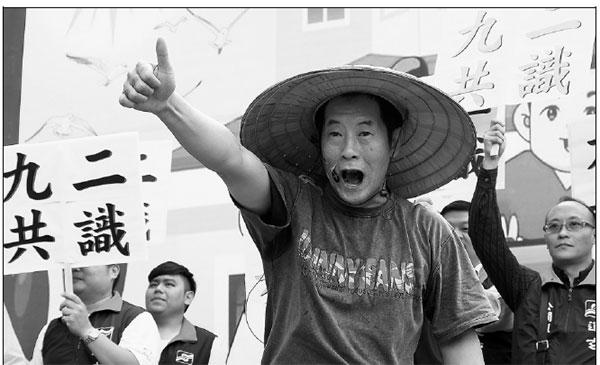HK experts call for moderation with Taiwan
A moderate and pragmatic approach to cross-Straits issues by Beijing and Taipei is essential for continued harmony, experts in Hong Kong caution.
Taiwan people are more concerned about economic issues than aggravating social and political differences, said Ringo Ma Chen-lung, associate dean of the School of Communication at Hong Kong Baptist University.
Ma said one of Taiwan's most recognized radical parties, the Taiwan Solidarity Union, failed to win a single seat in the most recent election. He expects incoming leader Tsai Ing-wen to abandon extreme positions on cross-Straits issues, in keeping with the mood of the island's voters.
Failing that, Ma said, the incoming DPP administration would face the same crises that undermined the outgoing administration of Ma Ying-jeou. Elections cannot avoid the "pendulum theory," under which people commonly vote for opposition candidates if the economy and social development fail to meet expectations, Ma said.
He noted that Hong Kong is substantially polarized. By contrast, he said, the majority of Taiwan people take a more pragmatic attitude toward the mainland. Tsai will need to make the economy her foremost issue. Ma said Tsai should adopt a moderate, pragmatic approach for interactions with Beijing.
He also expressed the hope that Beijing will adopt a soft approach to foster benign dialogue.
Susie Chiang Su-hui, chairwoman of the CS Culture Foundation, a prominent Hong Kong-based organizer of cross-Straits forums, cited the change in Taiwan public opinion in the wake of the deportation of Taiwan telephone scammers from Kenya to the Chinese mainland in April. Public anxiety ran high in Taiwan, as people fear a change of policy by mainland authorities could worsen cross-Straits relations. Later, Beijing agreed to deal with the matter with Taiwan.
According to a latest poll in Taiwan, the majority of those surveyed agreed that the suspects from Taiwan should stand trial on the mainland, since the victims were people on the mainland.
Chiang said she hoped Beijing would continue its mild policy toward cross-Straits issues and apply "soft power" to win the affection of the Taiwan people. Otherwise, she added, radical political advocates would capitalize on every disagreement that may spring up.
|
Activists display placards reading 1992 Consensus during a protest outside the Democratic Progressive Party headquarters in Taipei on Wednesday. They demanded that Taiwan's new leader, Tsai Ingwen, promise to recognize the 1992 Consensus. AFP |



















